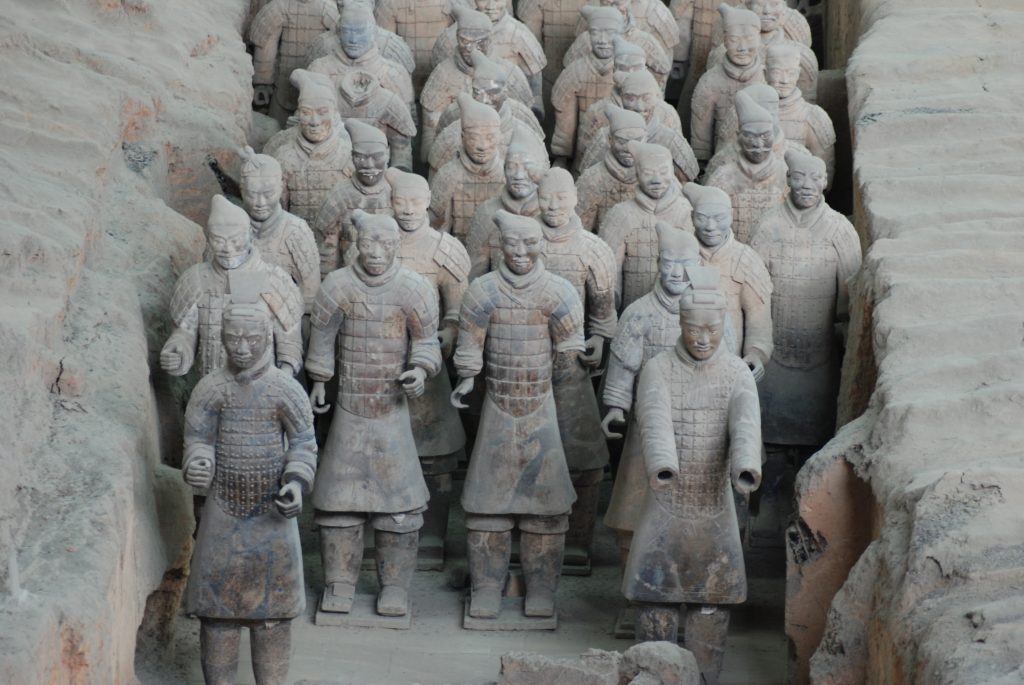How do the most productive and innovative companies do it? High Performance Story founder Cameron Powell reveals all in this explosive speech (5 min) at Silicon Valley's DisruptHR conference.
- Why you need to throw out your undifferentiated and uninteresting job descriptions now
- How hiring teams must interview for what really matters - strengths, not keywords of prior experience - through behavior-based interviewing Story
- And much more!
Step 1: Excavate

Excavate the Employer Story: Searching for Evidence of Culture
WIth a team of trial lawyers, anthropologists, literary critics, executive recruiters, and forensic psychologists, we dig in to find the evidence of meaning you didn’t even know existed.
Study Branding Guidance
If you've already developed materials on your Employer Story, that's a fantastic start. We'll study it, see what you're saying (and not saying), and talk to the creators.
Study your best employees
Your star employees are the templates of your brand, from what they believe in and how they work to how they talk about your company's products and services and the company itself.
Survey Candidate, Exit Interview, and Alumni Opinions
What do your employees think about the meaning of their work, and your company, on the way in, on the way out, and after they've had time to reflect?
Case Studies of Happy Customers
Like your best employees, your happiest customers know exactly what you're doing right, and they often have the best ways of articulating it.
Ransack Sales and Marketing ideation and content
Sales and Marketing - including customer service and technical support - are on the front lines. What are they hearing?
Study your External Reputation
In online employee forums, lawsuits, the media, and our own proprietary sources, we learn a lot about your organization by examining the messaging that's not in your control.
Step 2: Integrate

We sift and interpret the evidence through the prism of Story, Meaning, and what matters to employees and teams.
We start by identifying themes in your organization's culture, including your employees' and customers' sense of meaning about what you do - and how you do it.
Best in Class
Also known as Best Beats First (McKinsey), this theme emphasizes that your organization, first to market or not, is simply the best at what it does.
Ingenuity
Also known as Master of Reinvention this theme may be used by both startups and incumbents in the act of disrupting themselves.
Pluck
For the plucky, hard-working underdog, this theme may also include Serendipity, Perspiration, and the Unreasonable Person.
Trendy
This theme emphasizes what McKinsey calls the Power of Riding Trends. This is a particularly powerful theme for startups prior to their IPO. Catch the wave!
Meaningful Missions
If your organization's work draws emotional resonance from its mission - tackling climate change, inequality, crime, immigration issues, prison conditions, healthy food - or its beneficiaries - children, vulnerable people, animals - then you'll want to lead with the theme of meaningful work.
Step 3: Articulate

Using techniques drawn from literature and literary criticism, copywriting, public relations, and rhetoric, High Performance Story will create the ultimate expression of your Employer Brand for use in any media.
Start with why.
He who has a WHY can bear almost any HOW. - Nietzsche
The great philosopher captured the essential truth of all endeavors. There is no better place to begin in order to motivate people with their own WHY.
Make it aspirational.
Look forward, not back. Solve problems. Reach for goals always still just ahead, so that any employee, no matter when she's arrived, feels something to strive for.
Express what’s meaningful
What we can all sign on to, in the end, is missions that increase joy and growth or that reduce suffering and stagnation. We'll find out what really drives your employees, investors, and customers and express it most powerfully through STORY.
Types of Meaning
Intrinsic Meaning
The evidence is clear: people motivated by intrinsic meaning outperform those motivated by money, reputation, or status. See the collected research in Daniel Pink's Drive, or Google's Project Aristotle (meaning is a top driver of teams), and the massive research into Flow.
Reputation Among Peer Group
Most people care about what their friends and peer groups think. Give your candidates and employees the tools to express to their peer group the intrinsic meaning of what you do, including whether your organization is plucky, best in class, ingenious, or trendy.
Wealth and Status
While salary and compensation aren't as effective in motivation as many managers think, and can often attract candidates with the wrong motivations for your projects, there's no question wealth and status can matter. But it must be handled carefully, lest you filter out the candidates you want and attract people likely to leave in less than a year.


